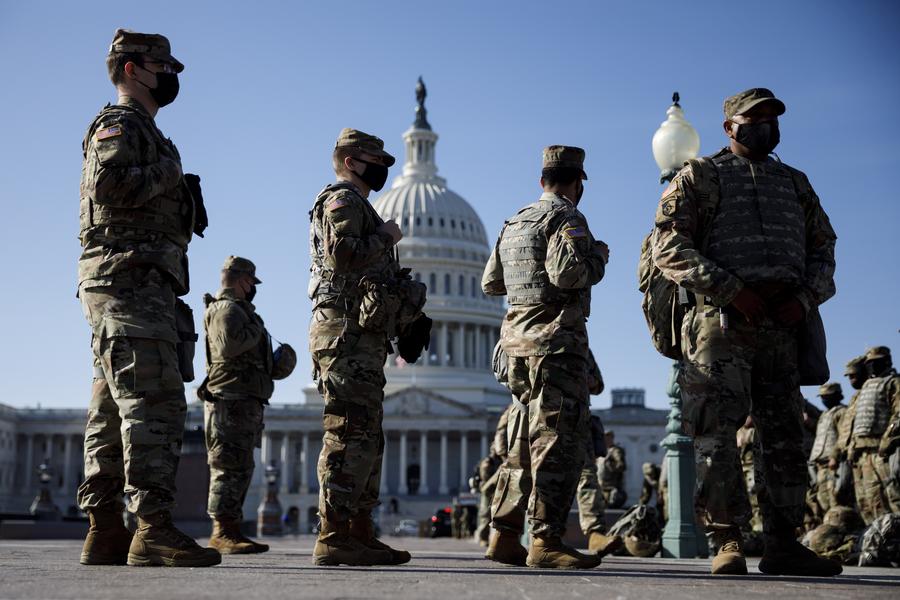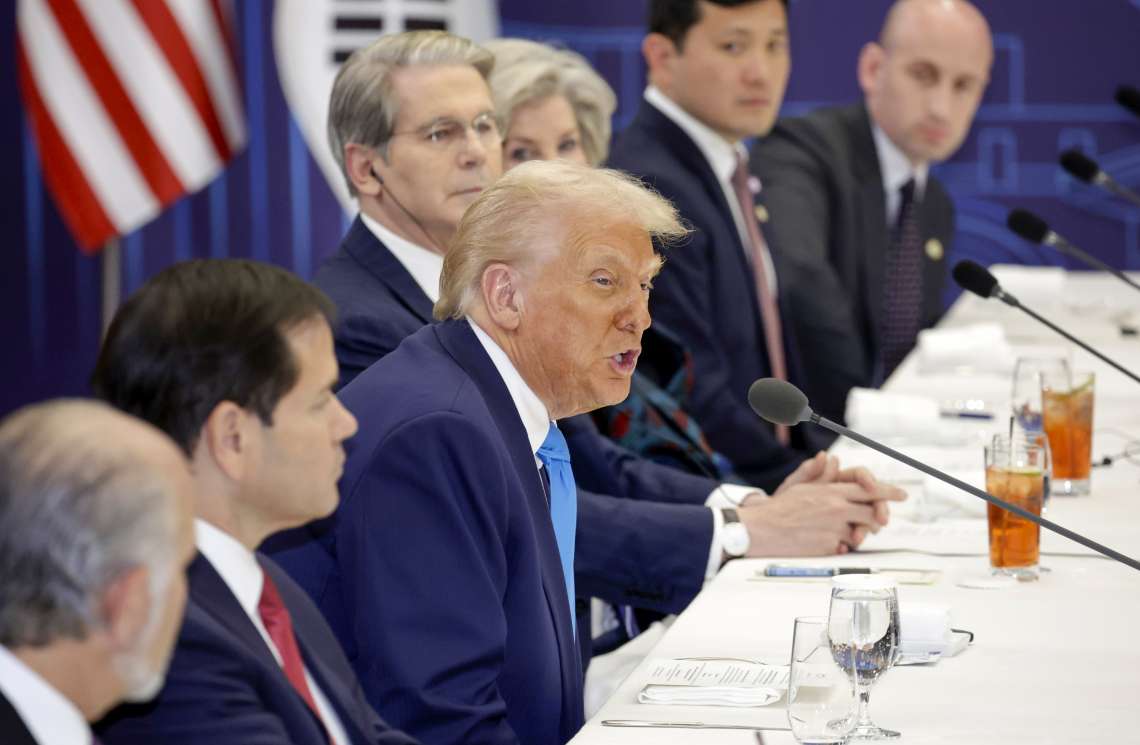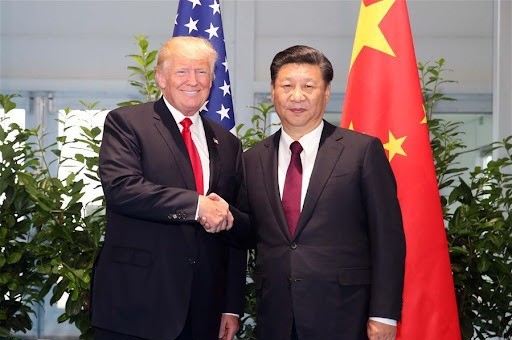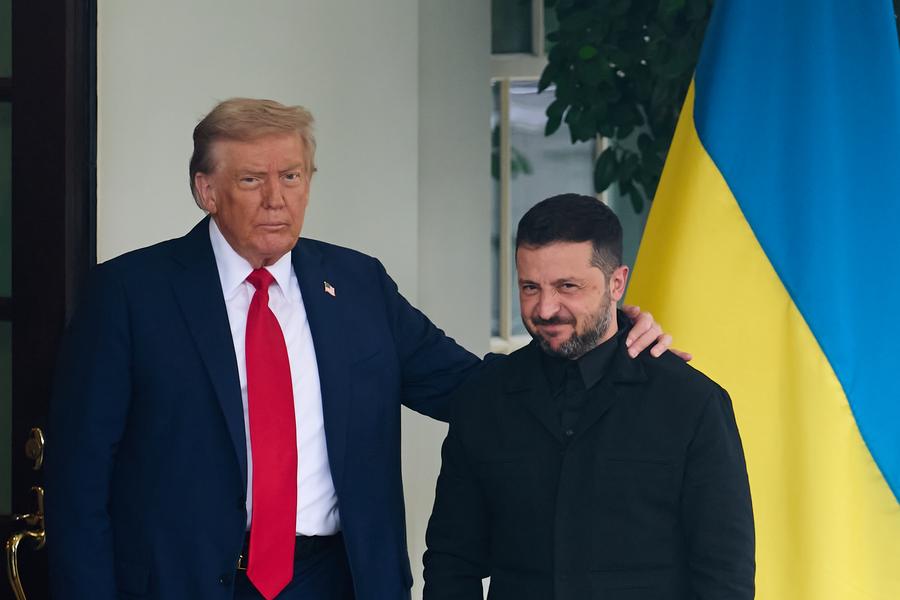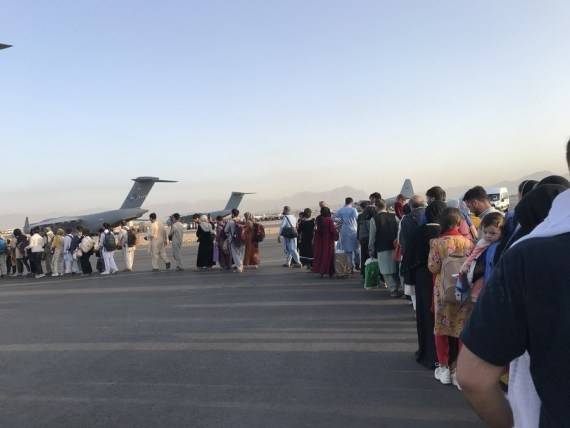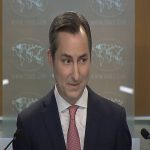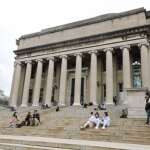President vows to “take back” the capital — locals hit back with chants of “Free DC”…reports Asian Lite News
President Donald Trump has announced that he plans to join troops and police patrolling the streets of Washington on Thursday, in what he described as a show of force to tackle what he called a “crime emergency” in the US capital. The move has ignited a fierce political and public debate, with critics accusing the administration of staging a heavy-handed takeover of a city that does not have the same powers of self-government as US states.
Speaking to conservative broadcaster Todd Starnes of Newsmax, Trump said he would accompany both military and law enforcement officers on the streets in the evening. “I’m going to be going out tonight I think with the police and with the military of course… We’re going to be doing a job,” the Republican president said. His remarks followed his earlier promise to “take our capital back” after deploying hundreds of National Guard soldiers to Washington last week.
The president’s latest intervention comes as his vice president, JD Vance, faced hostile receptions during a visit to troops stationed in the city. Vance, once hailed as a rising Republican star, was met with chants of “Free DC” and loud boos during a stop at Washington’s Union Station on Wednesday, where he sought to bolster support for the mission. Residents shouted slogans and insults as he entered a fast-food restaurant, reflecting growing local resentment at what many see as a federal occupation of their neighbourhoods. Vance dismissed the demonstrators as “a bunch of crazy protesters,” but the heckling underscored the tensions surrounding the deployment.
The Pentagon confirmed that 800 members of the DC National Guard have been mobilised, while a further 1,200 troops are being supplied by Republican-led states including Ohio, Louisiana, Mississippi, South Carolina, Tennessee and West Virginia. Uniformed personnel have been seen patrolling prominent landmarks such as the National Mall, monuments, and around Nationals Park baseball stadium, as well as at key transport hubs.
Administration officials including Defence Secretary Pete Hegseth and White House Deputy Chief of Staff Stephen Miller joined Vance in greeting soldiers at Union Station. However, the optics of Republican leaders rallying troops in a city that has no voting representation in Congress has only fuelled accusations of political opportunism and federal overreach.
Trump has also attempted to assert control over the Washington Metropolitan Police Department, seeking to sideline its leadership in order to align the force more closely with federal objectives. Although his efforts have faced resistance, the attempt has added to concerns that the White House is centralising authority over local institutions.
Residents remain deeply divided over the measures. Some have welcomed the additional security presence, citing concerns about crime in their neighbourhoods. Others, however, argue the deployment is a publicity stunt that has little to do with the city’s most pressing challenges. “We don’t see any of these troops in the places where gun violence is actually happening,” one Washington resident told local media, “but they’re lining the streets where tourists are.”
Statistics from the Metropolitan Police Department indicate that violent crime in Washington actually fell significantly between 2023 and 2024, following a post-pandemic surge. Nonetheless, Republican leaders have repeatedly painted the capital as unsafe, disorderly and financially mismanaged. The narrative has become a staple of Trump’s campaign rhetoric as he attempts to draw a contrast between Republican governance in conservative-led states and what he portrays as Democratic failure in urban centres.
The situation has also sparked moments of farce, with viral clips circulating of confrontations between residents and the influx of security forces. One man became an unlikely folk hero after throwing a sandwich at a federal agent during a night out. Arrested shortly afterwards, the individual has been celebrated online as “sandwich guy,” with Banksy-style posters commemorating him now appearing on walls around the city.
In statements on social media, the National Guard defended its role, saying it was providing “critical support such as crowd management, presence patrols and perimeter control in support of law enforcement.” Officials insisted the deployment was temporary and designed to assist in “restoring order.”
The escalation in Washington follows a similar intervention in Los Angeles earlier this month, where Trump dispatched both the National Guard and US Marines to quell unrest sparked by aggressive immigration enforcement raids. Civil liberties groups have condemned both actions, warning they blur the lines between military and civilian authority.
For residents of Washington, who live in a city without full statehood or voting representation in Congress, the latest episode has revived long-standing frustrations over their limited democratic rights. The chants of “Free DC” that greeted Vance point to a deeper sense of grievance over federal control that stretches back decades. As Trump prepares to walk the streets himself with soldiers at his side, the capital is bracing for yet another extraordinary demonstration of power that critics fear may do little to address crime, but could profoundly reshape the relationship between Washington and the federal government.


